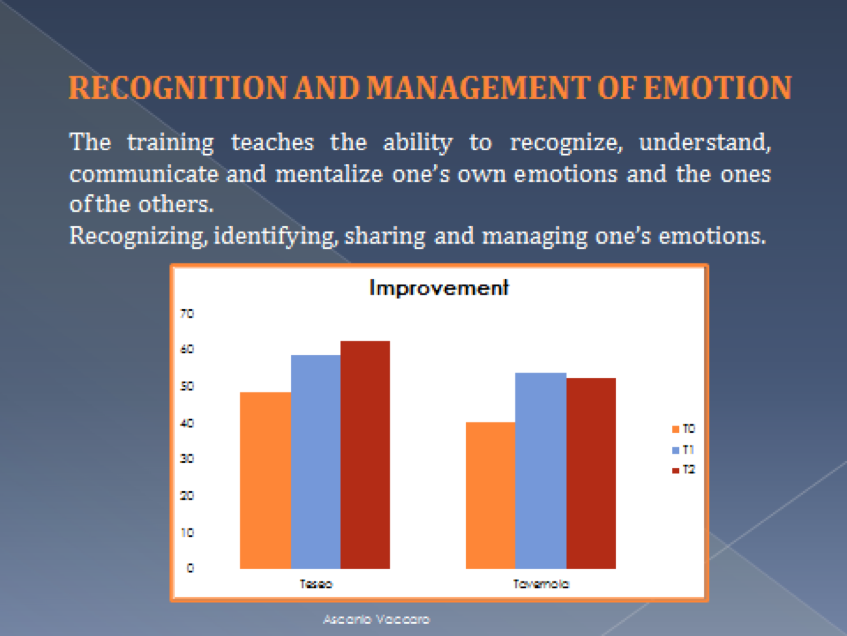Emotional Management Training in Residential Mental Health Services
Vaccaro A.(Psychiatrist, Psychotherapist), Zoppellaro C. (Psychologist, Psychotherapist)
Introduction
A core element for the treatment of psychiatric patients in mental health services is the Psychosocial Rehabilitation. In this work we mainly refer to a training whose targets are fundamental components of the Emotional Intelligence (EI), which is, according to the original Saloveyand Mayer’s definition (1990), “a set of skills hypothesized to contribute to the accurate appraisal and expression of emotion in oneself and in others, the effective regulation of emotion in self and others, and the use of feelings to motivate, plan, and achieve in one’s life”.
Objectives
The purpose of this study is to evaluate the efficacy of Emotional Management Training and to compare our emotional management assessment to standardized emotional intelligence assessment instruments.
Methods
Twenty adult inpatients (from 18 to 55 years of age) were enrolled: ten subjects were assigned to a one year lasting emotional management training (clinical target group) and ten subjects were assigned to a clinical control group; furthermore twenty subjects were selected and assigned to a non-clinical control group. Outcome measures were: emotional management assessment, Schutte Emotional Intelligence Scale (SEIS) and Toronto Alexithymia Scale (TAS-20)
Bibliography
- Ventura J, Wood RC, Hellemann GS: Symptom domains and neurocognitive functioning can help differentiate social cognitive processes in schizophrenia: a meta-analysis. Schizophr Bull 2013, 39(1):102-111.
- Turkington D, Morrison AP: Cognitive therapy for negative symptoms of schizophrenia. Arch Gen Psychiatry 2012, 69(2):119-120.
Results
Emotional management assessment outcomes confirm the efficacy of emotional management training. Preliminary results also confirm the effectiveness of the assessment compared to standardized emotional intelligence scales.
Conclusions
Emotional management training improves psychiatric patient competence in terms of: emotions definition and acknowledgement, self-emotion identification, self-emotion sharing, management of stressing situation and intense emotions.

Dr. Ascanio G. Vaccaro a.vaccaro@psicopoli.com














